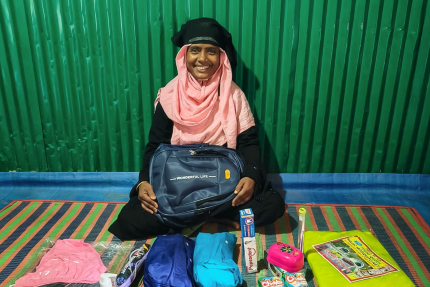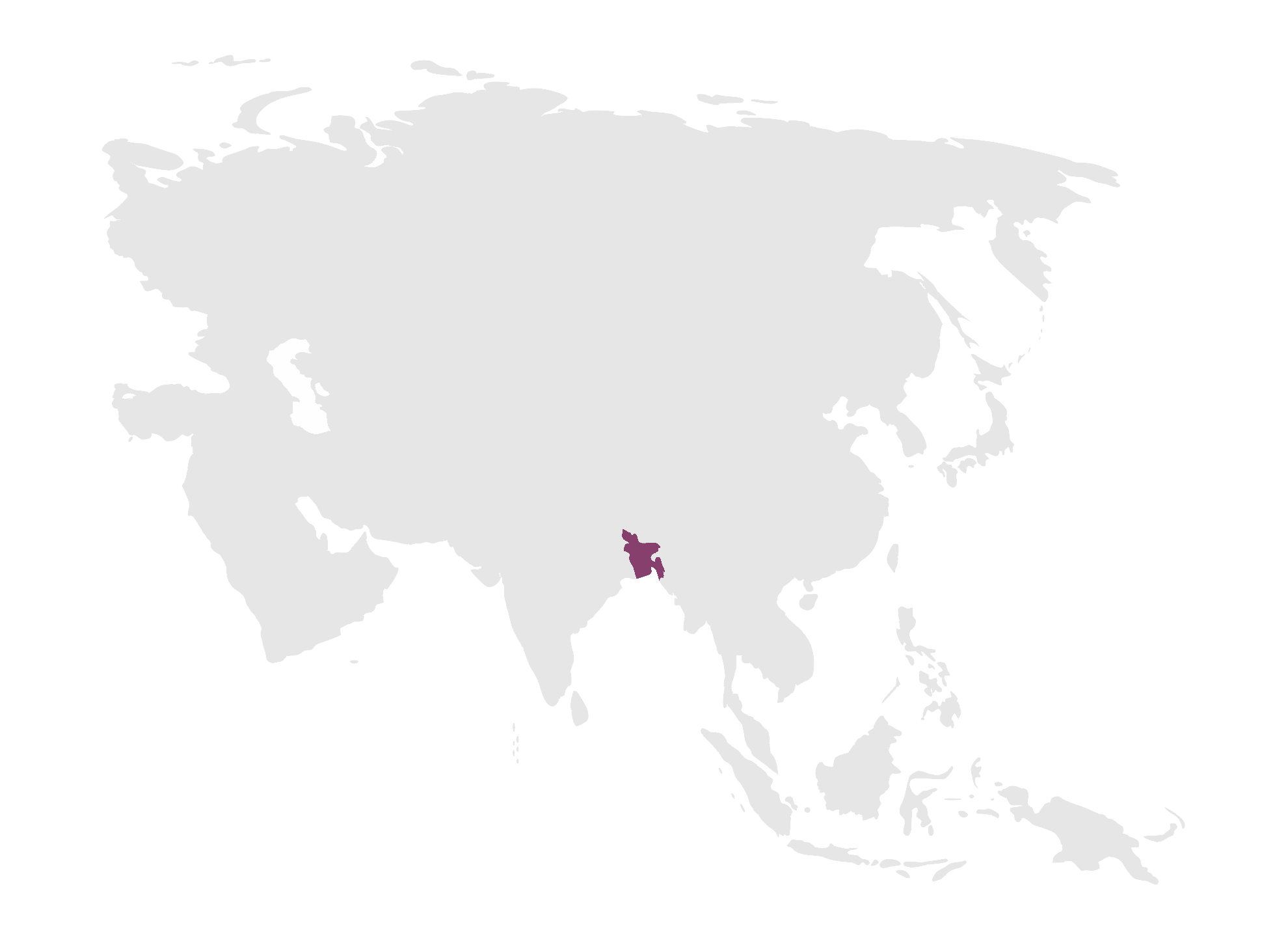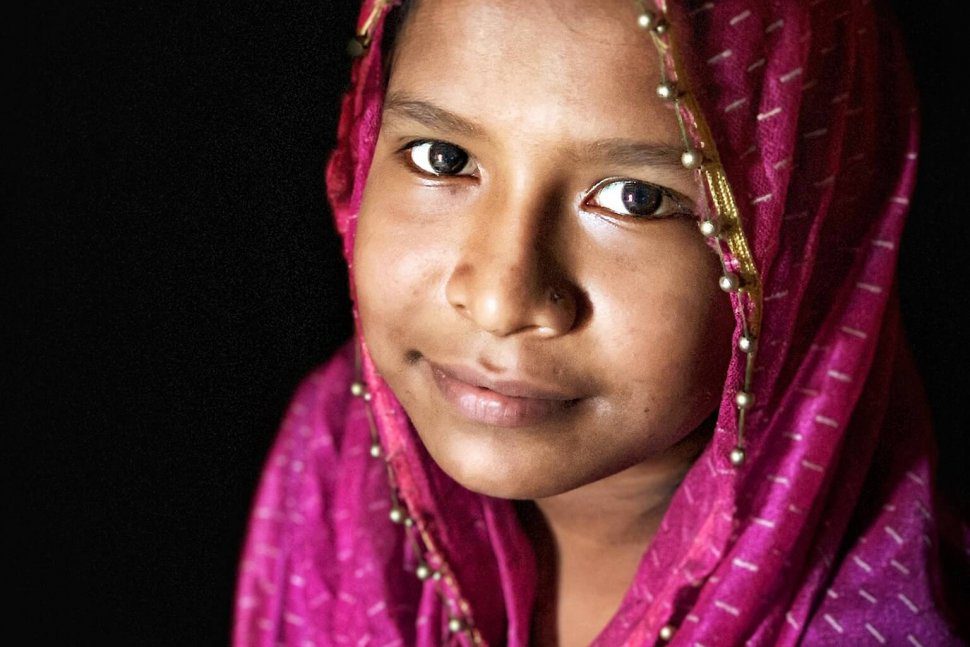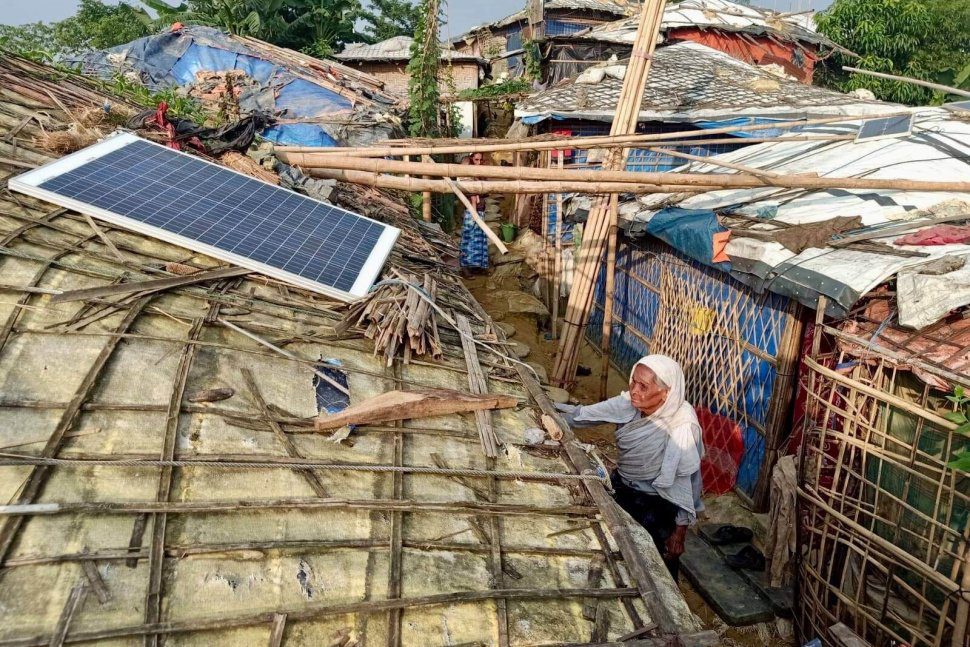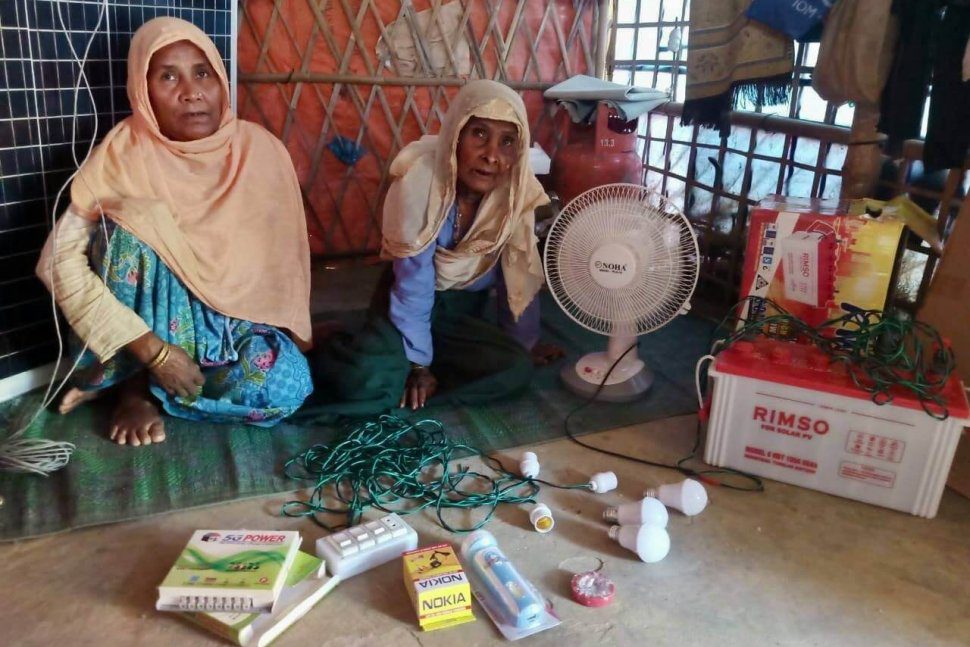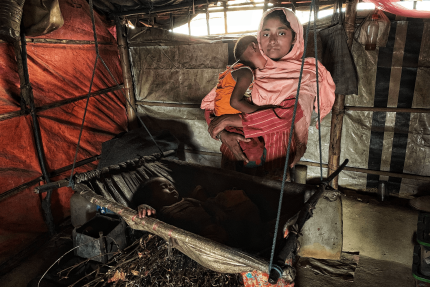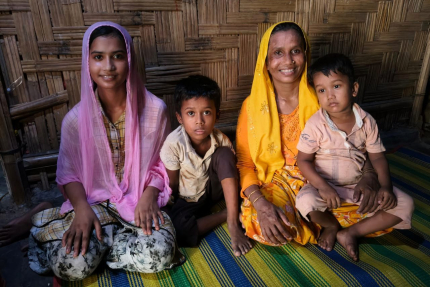It is like giving eyes to a blind man,” Nur Bano whispered when she saw the solar panel you had funded being installed on the roof of her shelter.
For Nur Bano and her children, electricity to light her hut means SAFETY, which is everything. There will finally be an end to the constant fear that accompanies lighting an oil lamp every evening, which on more than one occasion has set fire to camp shelters made of bamboo and plastic tarpaulins. The open fire brings back memories of Nur Bano’s worst nightmare – the fires in which her three children had died.
The first time Nur Bano fled the flames was in the autumn of 2017. That was when, after years of persecution, Myanmar’s military carried out a genocide of the Rohingya ethnic minority, torching three-quarters of their villages. Nur Bano used to live in one of them. At the time, her two youngest children perished in the flames. The woman fled to Bangladesh, saving the remaining four. The nightmare recurred when, in March this year, a gigantic fire in the refugee camp in Cox’s Bazar consumed more than 9,000 huts. Again, she lost another child in the blaze.
With 40,000 people per square kilometre, the refugee camp in Cox’s Bazar in Bangladesh is one of the most crowded places on earth. This is where you and The Good Factory have been helping for the past three years to alleviate the hunger and suffering of Rohingya families trying to survive in the reality of the camp, which is often stripped of all dignity.
Among them are single mothers and elderly women who are unable to cope alone in the vast camp. Every month we provide them with food to enrich their diet and strengthen their weak bodies. We also help to equip their huts with basic items to restore at least a semblance of a home.
“The worst was after dark. I was afraid to even go out to the toilet and leave the children in the shelter with the burning oil lamp. They were not safe alone in the dark shack either. I trembled with fear every time I was forced to walk through unlit parts of the camp at night. It was so easy to slip on the clay slopes of the camp here, or to become a victim of sexual violence,” Nur Bano told us.
For the past few weeks, the lives of Nur Bano and her children no longer have to come to a standstill after dark. Surrizzonl, Hashina and Senowara have also experienced this significant change. Thanks to you!!!
You have given them what is still considered a luxury for many in the camp – electricity in their shelters, synonymous with safety and normality. They did not hide their tears when 100-watt solar panels appeared on the roofs of their shacks. In a place where the sun sets after 5 p.m., this means that they will no longer be eating their evening meals in the half-light of dangerous oil lamps. We also provided each of them with a torch, necessary for moving around the poorly lit camp in the evenings. And finally, a little relief from the stuffy huts, where the temperature often exceeds 30 degrees, will be brought to them by the fans you have also donated.
All this – producing GOOD in a place where human rights are so often trampled on, where so many people have lost hope of changing their fate, where for many camp residents are simply a lost generation – we can only do thanks to you!!! We can’t give the Rohingya back their rights, we can’t give them citizenship, but we can continue to work on restoring their dignity, reducing hunger and bringing relief from their suffering. Help us continue to assist the most vulnerable families in the camp!
Your 20 PLN can feed an entire Rohingya family, equip them with torches or help them buy a solar panel.
To tak, jakbyście podarowali niewidomemu oczy – wyszeptała Nur Bano na widok instalowanego na dachu jej szałasu panelu solarnego, który ufundowaliście.
